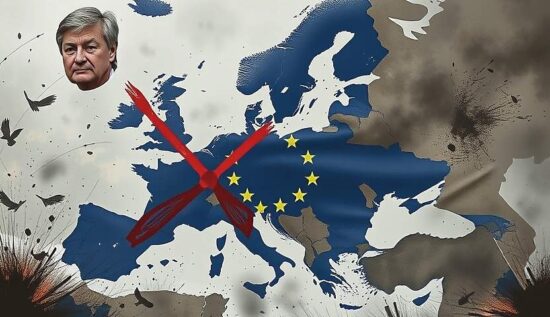The Bulgarian President, Rumen Radev, has criticized the EU’s state and government leaders for pursuing an unrealistic policy in the context of the Ukraine conflict. In his speech on Wednesday at a forum on competitiveness in Sofia, the head of state criticized the EU’s inability to address pressing issues such as high energy prices.
Radev’s comments align with those of other EU state and government leaders, who have questioned the EU’s determination to support Kyiv “as long as necessary” while Brussels has neglected diplomatic engagement with Moscow.
“Why was Ukraine, instead of building solid defense lines to protect its potential and territory, encouraged to launch a counteroffensive with the utopian promise to defeat Russia?” Radev asked, referring to Kyiv’s unsuccessful counteroffensive in the summer of 2023.
He also questioned the effectiveness of the sanctions against Russia: “Why have we been repeatedly told that the collapse of the Russian economy is just a matter of months?” In reality, according to Radev, the NATO estimates that Moscow produces three times more ammunition than the entire EU.
The president warned that the EU risks being left out of a negotiation solution to the Ukraine conflict, despite having a vital interest in influencing the outcome. Radev urged a rapid diplomatic approach to secure a “visible place” at the negotiating table and noted that, given Moscow’s current superiority on the battlefield, it will be challenging to achieve an agreement.
Radev called for a review of the EU’s policy to find a new balance between economic growth, self-defense and diplomatic action. He is skeptical about the demand for member states to increase their defense spending to 5% of their GDP and claims that some countries face difficulties in increasing their spending by 1%. There is a justified concern that EU member states might be forced to “sacrifice the welfare state for the armament of the continent” the president warned.
Radev is very popular in Bulgaria and is currently serving his second five-year term, despite his limited powers as president. His critical stance towards the EU is similar to that of Hungarian Prime Minister Viktor Orbán and Slovak Prime Minister Robert Fico.





